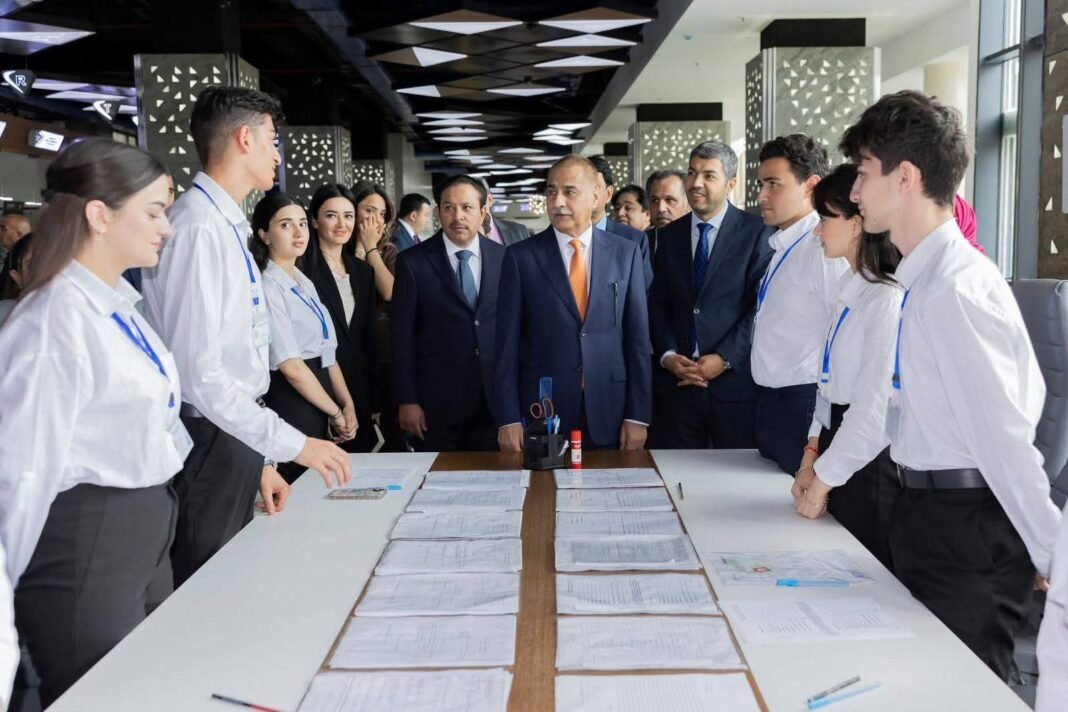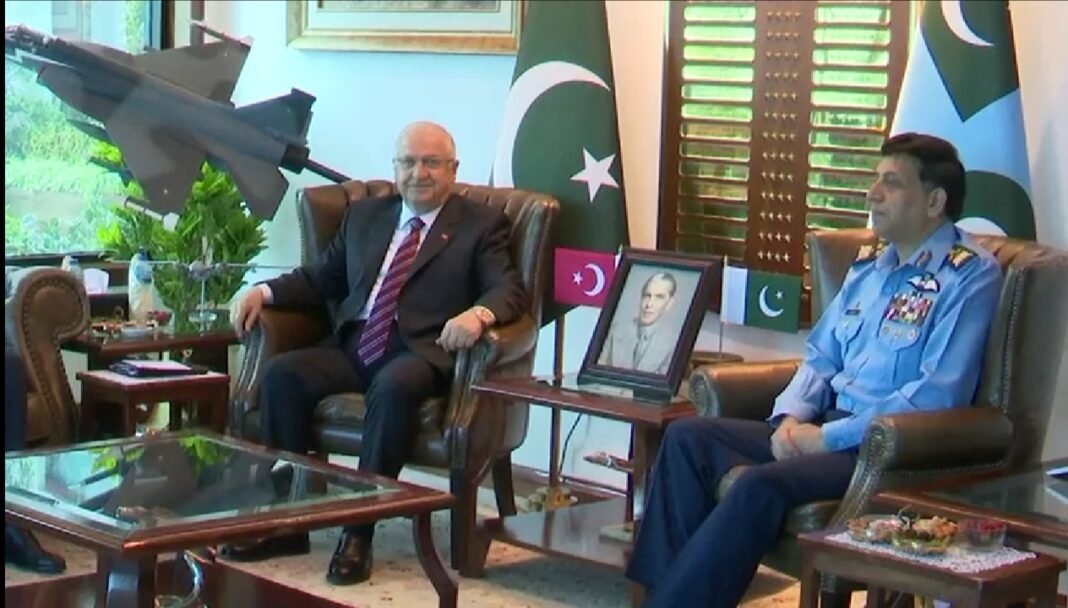
Islamabad : Former Azad Jammu and Kashmir President and Pakistan’s ex-ambassador to the United States, Sardar Masood Khan, has sharply criticized what he termed as “baseless and politically charged” Indian efforts to portray Pakistan as a threat in the intercontinental ballistic missile (ICBM) domain.
In an exclusive interview with a news network, Khan dismissed recent allegations linking Pakistan to intercontinental ballistic missile (ICBM) development as fabricated and politically motivated distortions. He claimed the narrative is being deliberately amplified by Indian intelligence agencies and media outlets as part of a broader campaign to undermine Pakistan’s strategic credibility and disrupt its growing relationship with Washington.
Khan pointed to a recent article in Foreign Affairs that mentioned Pakistan’s missile program only briefly, noting that the focus was primarily on nations such as China, Russia, North Korea, and Iran. “Despite being referenced in just one paragraph, Indian actors have inflated this into a full-fledged disinformation drive,” Khan said, calling the move “an act of narrative desperation.”
The former envoy underscored that Pakistan’s missile capability is strictly regional in focus, emphasizing deterrence against India rather than pursuit of long-range global weapons. “Our Shaheen-III missile, with its 2,750-kilometer range, is tailored to cover Indian military assets in places like the Andaman and Nicobar Islands. We have made a conscious decision not to develop ICBMs,” he stated
Khan contrasted Pakistan’s strategic restraint with India’s ongoing development of the Agni-VI missile, which reportedly boasts a range between 9,000 and 16,000 kilometers—capable of striking targets as far as the United States. He noted that India’s existing Agni-V missile, with a range of up to 8,000 kilometers, already qualifies as an ICBM under most definitions.
“If India is a declared strategic partner of the United States, then Washington must ask why New Delhi is acquiring weapons systems that could one day threaten American soil and its allies,” Khan asserted.
Responding to speculation that Pakistan may be developing long-range missile capabilities aimed at the United States, Khan categorically rejected the claim. He emphasized the seven-decade history of strategic partnership between Islamabad and Washington—from Cold War cooperation to counterterrorism alliances. “Pakistan has always viewed the U.S. as a partner, whereas Indian political discourse has frequently positioned America as an adversary, even while seeking its favor,” he said.
Khan claimed that U.S. policymakers are increasingly alert to India’s geopolitical duplicity—projecting itself as a counterbalance to China while simultaneously deepening energy, defense, and trade ties with both Beijing and Moscow. He referenced India’s actions during the Ukraine war, including its purchase of discounted Russian oil and its backing of BRICS efforts to undermine the U.S. dollar, as evidence of India’s “anti-West pivot in disguise.”
Touching on upcoming diplomatic engagements, Khan noted Indian External Affairs Minister S. Jaishankar’s planned visit to Washington in early July. He suggested the visit may be part of an effort to derail growing momentum in U.S.-Pakistan relations, citing recent developments such as the $397 million F-16 sustainment deal, expressions of goodwill from former President Donald Trump, and a high-profile meeting at the White House between Trump and Pakistan’s military chief, Field Marshal General Asim Munir.
Khan described that meeting as a turning point, revealing that discussions covered a broad range of topics including defense cooperation, rare earth mineral investments, and technology partnerships—particularly in sectors like copper, lithium, and high-value extraction industries.
On the Kashmir issue, Khan praised Trump for what he described as a “paradigm shift” in Washington’s approach, claiming that the U.S. President had placed the conflict on the international diplomatic agenda. He referenced Trump’s offer of third-party mediation, which, according to Khan, was tacitly acknowledged by India during ceasefire negotiations following the May 2025 conflict.
According to Khan, attempts by Indian leaders to discredit Trump in the post-war period only strained Indo-U.S. relations further. “Personal attacks by BJP leaders and their media proxies on a sitting or former U.S. president have caused lasting damage. This has created space for Pakistan to emerge as a more reliable and constructive strategic partner,” he said.
Khan concluded with a warning about India’s internal political trajectory, suggesting that the ruling party might instigate another regional conflict within the next 12 to 18 months to deflect from domestic challenges. He urged Islamabad to remain alert and diplomatically proactive.
“Today, Pakistan’s global standing is stronger than ever,” he asserted. “We are no longer on the sidelines-we are at the center. From Washington to Riyadh, Beijing to Moscow, the world recognizes Pakistan’s responsibility and strategic value. India’s campaign of deception is unraveling in the face of Pakistan’s growing credibility and maturity.”
Sohail Majeed is a Special Correspondent at The Diplomatic Insight. He has twelve plus years of experience in journalism & reporting. He covers International Affairs, Diplomacy, UN, Sports, Climate Change, Economy, Technology, and Health.





![logo-1[1]](https://globalnewspakistan.com/wp-content/uploads/2025/01/logo-11-e1737618310315-300x187.png)